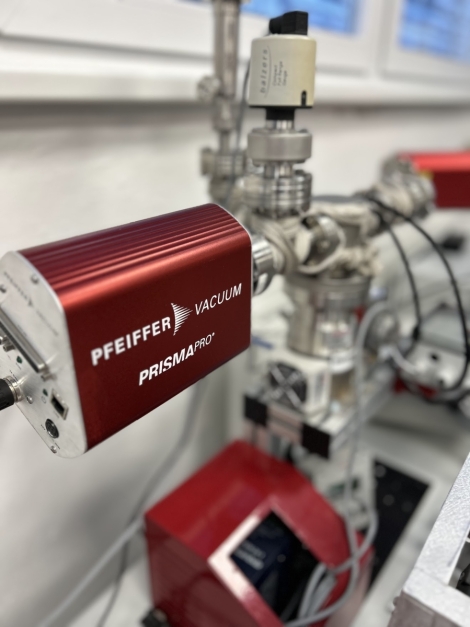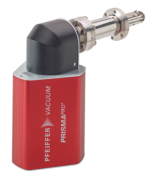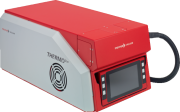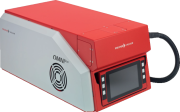Quadrupole Mass Spectrometer
| Manufacturer: | Pfeiffer Vacuum |
| Status: | New |
We offer Pfeiffer Vacuum PrismaPro and Thermostar/Omnistar analytical instuments
There are various configurations and different peripheral devices for quadrupole mass spectrometers (QMS), which can be selected specifically to suit the area of application depending on the requirements.
Basically, partial pressures are determined with a mass spectrometer, also known as RGA for short, while vacuum measuring tubes are used to measure total pressure. Only the measurement of gases is possible - which includes the analysis of solid or liquid substances if they have previously been evaporated.
Important decision criteria for device selection are:
-
The pressure range and the associated design
-
Analytical performance (this includes masses to be detected, resolution, detection limit, measurement speed)
Influence of the pressure range on the construction
The gases in a chamber that has been pumped down to low pressure, are prepared for analysis by ionizing the electrons. The ions generated in this way are separated in a mass filter according to their mass to charge ratio. High vacuum is a mandatory requirement for these processes. Accordingly, the pressure range in which the gas is to be analyzed usually also dictates the design.
Analytical performance
There is no one universal mass spectrometer that covers all possible applications. Regardless of the pressure, the initial conditions and the goal of the analysis vary. Therefore, before selecting the equipment, it makes sense to be clear about which analysis task is to be solved and to define what goal you want to achieve with the equipment. The requirements to be taken into account primarily include the following criteria.
-
Measuring speed
-
Resolution
-
Masses to be detected
-
Limit of detection
Measuring speed
The measurement speed can also be adjusted depending on the analysis task, for example with the PrismaPro from a minimum of 1 ms up to 16s. The measurement speed influences the amount of noise (both the signal and the background).
Resolution
The resolution can be adjusted depending on the area of application, mainly via the software. It affects separation and signal height. A so-called standard resolution is common.
Masses to be detected
Which masses must be found for the area of application? The smallest suitable mass range should be chosen. Smaller mass range ensures better sensitivity (signal).
Detection limit
The detection limit is influenced by the sensitivity and peak overlap. Sensitivity also varies depending on the detector used (Faraday vs. Faraday/SEM).
Detectors
Depending on the operating pressure, different detectors are used:
For the Faraday detector (F), the operating pressure does not need to be as low as for the combined Farady /C-SEM detector (M). However, this has a direct impact on the detection limits. The exact numbers depend, among other things, on the residence time and the ion source used, which can be found in our brochures.












